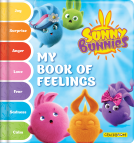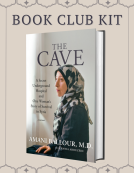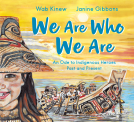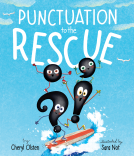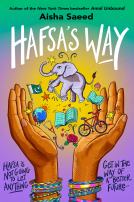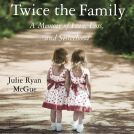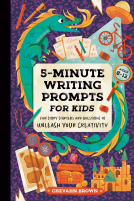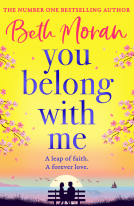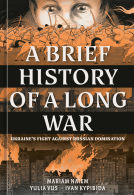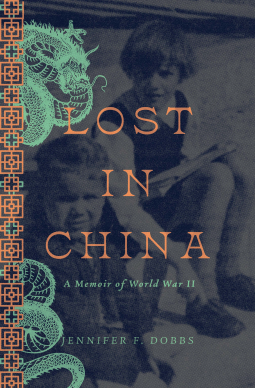
Lost in China
A Memoir of World War II
by Jennifer F. Dobbs
This title was previously available on NetGalley and is now archived.
Send NetGalley books directly to your Kindle or Kindle app
1
To read on a Kindle or Kindle app, please add kindle@netgalley.com as an approved email address to receive files in your Amazon account. Click here for step-by-step instructions.
2
Also find your Kindle email address within your Amazon account, and enter it here.
Pub Date Sep 20 2022 | Archive Date Sep 19 2022
Talking about this book? Use #LostinChina #NetGalley. More hashtag tips!
Description
It’s November 1941. Siblings Jennifer and John, ages seven and five, huddle in a cement culvert near Kunming, China, while Japanese Zeros fly overhead. Jennifer pretends to ignore the screech of gunfire. Where are Daddy and Mummy? she thinks.
Lost in China is the true story of two Anglo-American children separated from their parents in China during World War II, and their unforgettable journey to America a year later. When their mother and father fly to Hong Kong on a short trip and get caught up in the Japanese attack, the Dobbs children are left parentless, with no idea when their parents will return—or if they are even still alive. For a year, the children remain in Western China. Finally, after spending a month traveling three-quarters of the way around the world via the US military’s World War II air ferry routes, they reunite with their mother in a rain-swept, deserted airfield in Washington, DC—and face a shocking discovery about their father.
Lost in China is both a riveting firsthand account of a family broken apart in World War II China and a daughter’s tribute to her beloved father.
Advance Praise
“This is a story of a child, and of a journey. At its heart is the tale of how two young children in China, their mother trapped by war in Hong Kong, their father killed there, crossed a world in conflict. Jennifer Dobbs tells her singular and moving story, summoning impressions and memories of a China childhood, a family shattered, and of a father lost in battle.”
—
Robert Bickers, associate pro vice-chancellor for postgraduate research, professor of history, University of Bristol
Marketing Plan
Advance Reader Copy campaign
KIRKUS and editorial reviews
Awards submission
Author website
Goodreads giveaway
Advance Reader Copy campaign
KIRKUS and editorial reviews
Awards submission
Author website
Goodreads giveaway
Available Editions
| EDITION | Paperback |
| ISBN | 9798985888317 |
| PRICE | $14.95 (USD) |
Links
Average rating from 16 members
Featured Reviews
 Mike H, Reviewer
Mike H, Reviewer
Lost in China by Jennifer F. Dobbs I enjoyed this book immensely. This is the first and perhaps only book by Ms. Dobbs and she tells us the story of herself and her brother in China during the early 1940’s. She is about six yrs. old and her brother 4 years old when the story begins. The children are American and they along with their older brother, mother and father lead a very privileged life in China with fine clothes and loving help who take care of them. Though they speak Chinese to some extent, the servants ensure that life moves along as smoothly as is possible in China. This all changes in December 1941. Their parents fly from Shanghai where they live to Hong Kong for some Christmas shopping leaving the children behind. Pearl Harbor occurs, their father is killed and their mother is rounded up and place in a prison camp. The children now are without parents. The two children are moved about until finally they are found and flown over a two-month period across Southern Asian, Africa, to Brazil and finally to Washington DC where they are reunited with their mother who has made it to America in a prisoner exchange with the Japanese. The remainder of the book which brings us up to today is about the bitterness Ms. Dobbs feels toward her mother and step-father and leaves home in the early 50’s as soon as she graduates high school. She does seem to lead a rich and rewarding life but it is her childhood which oddly she left the papers and memories in the attic until a few years ago. Why ? I do not know nor does she explain. But I am thankful, she has decided to share her story of her childhood in China with us.
 Angie k, Educator
Angie k, Educator
Lost in China by Jennifer Dobbs is a very interesting memoir about the author's childhood in China during WWII. Born in 1934, Jennifer is raised with her younger brother, American mother and British father in China. As the war between Japan and China hits a boiling point in 1940, Jennifer and her family begin a series of journeys across China to Burma using transportation such as: Red Cross convoys, Rickshaws, being carried by servants in Sedan chairs, driving cars across bridges made of pontoon boats or bamboo and many other bizarre modes of transportation that would be unthinkable today. Jennifer and her brother are separated from their parents in 1941 when they go to Hong Kong and do not return. A servant is asked to bring the children to friends of their parents, where they stay for a period of time before being sent to a boarding school. They are then returned to the friends in preparation for a very long journey to America. All along the children receive no news of their parents, have none of their personal belongings and are living among complete strangers for over a year.
Jennifer's story is incredible. I learned so much about China during WWII as well as a lot of new information about the war as it played out in Asia. Often the most popular books about WWII are set in Europe or involve Japan and America, but I have not had a chance to read about the fighting between China and Japan and really appreciated this informative story. Considering Jennifer was only 6-8 years old during the majority of the events, she is able to give an extensive amount of detail. Some of this information was gathered through research and through trips back to China in the late 1990s, but regardless the amount that she was able to share is remarkable. Each chapter has footnotes, making it much easier to navigate than books where there are pages and pages of notes at the end. Additionally, where possible, Jennifer also included photos and maps to supplement the written information. The book reads like a memoir but has enough historical information to be seen as a non-fiction text about China during this period. It is well organized, well written and has a great balance of emotion and detail to make it difficult to put down. I found it was still a fairly quick read, in fact I finished it in under 24 hours, as I just had to find out what happened next!
Thanks so much to NetGalley and the publisher for giving me the opportunity to read and review this book! I would highly recommend it to people interested in WWII and China's involvement, as well as memoir-lovers like me!
 sara a, Reviewer
sara a, Reviewer
I stayed up late at night to finish this memoir. I simply could not put it down. It's a very rare accounting of an escape from China made by two small children. Their journey home where they literally hopped all over the world before arriving in the US is fascinating, and their life in China is described with surprising detail.
The loss of their father was huge to each family member and the changes that the author finds in her mother upon arriving in America are heartbreaking. It's just another way for us to understand how war wrecks both people and nations. I do hope this gets wide readership.
 Media/Journalist 188366
Media/Journalist 188366
"Master and Missy think the Japanese bombs cannot hurt them,” Ping San continues. “They think they’re safe because they’re Western. I don’t think Jap bombs know the difference between Chinese and Western People."
Lost in China is the exhilarating story of two British-American children, John and Jennifer Dobbs, separated from their parents during World War II. This important new memoir is unique in its detailed observations about Western families, life in rural, wartime China, the experiences of Jewish refugees and the customs of Chinese minorities. This is a book where, thanks to the description and a grasp of history, the reader knows what's going to happen and yet is in constant suspense. It's a lovely tribute to a father ("For Daddy - and all the daddies lost to war.") which also highlights the suffering of the Chinese people during this turbulent period.
The introduction provides wonderful photographs and summaries of the author's significant family history in China. Jennifer's grandfather was a professor at Peking University who dedicated himself to "campus beautification" and installing pieces of marble from the destroyed Summer Palace. Photos of her grandma show her in a large feathered hat standing behind Empress Dowager Cixi. She explains that the entire family spoke Chinese fluently and that all conversations in the book should be read as if they were in Chinese, unless otherwise stated. Still, they kept up with their Western habits. For example, their father marked his luggage with his university colours and Jennifer comments "My only storebought clothes are my school uniforms, which are ordered from Lane Crawford in Hong Kong. Daddy’s suits come from Savile Row in London." This family's life was deeply rooted in China before they were broken apart with the Fall of Hong Kong.
The writing isn't childlike, but it is written from the perspective of the child. At first I was thrown by having to wait for the footnotes to explain the historical, political or geographic background, but then I found that this added to the suspense and gave the book a feel similar to some anime films such as In this Corner of the World. This book isn't excruciating to read, but it does deal with children being separated from their parents and fearful of being separated from each other. Some scenes are heartbreaking.
I especially enjoyed reading about their new nanny, a teenage refugee from Vienna with a "mass of dark, thick, wavy hair." This book follows nicely after reading The Last Kings of Shanghai, since these sections occasionally mention prominent Jewish families. “The Jewish Refugee Committee is seeking places for the new arrivals from Austria and Germany,” Mummy continues. “Mrs. Kadoori says there’re thousands of refugees arriving this very week." It turns out that their new nanny is hiding the fact that she can't actually speak English, so the two children kindly do as they overhear their mother instruct, until Lola can learn enough English and Chinese to get on. "I glance up at Lola, fascinated by her throaty attempt to pronounce the English and Chinese street names. I think it must be hard for her to learn English and Chinese, too, all at the same time." The child's perspective offers insights into life with nannies, servants, local children and merchants that might have been overlooked by an adult.
Although the Jennifer doesn't quite understand the dangers at the time, risk is ever present for this family. Cholera, diphtheria and typhoid fever are a constant danger in Shanghai. The nanny is attacked in the street by a thief and then the girls see how fighting between the Communists, the Nationalists and the Japanese is resulting in mass poverty and starvation. "Then Lola, John, and I gasp. Opposite the entrance are two large cages. And in the cages— standing or squatting on their heels— a crowd of men and boys. I realize that some of them are not much older than my brother. It’s terrible! I think. Small boys in cages! Where are their daddies? Their mummies? And look at their clothes! What the men and boys have on look more like rags than shirts and shorts or trousers."
It's hard to believe a civil servant would travel across China with two young children during a war or that higher ups would allow it, but it happened. They travel from Shanghai to Chongqing, facing the dangers of constant floods and unsafe transport as they moved on to Yunnan. It shows the realities of travel, especially for a little girl. She describes the toilet as saying "Daddy that I’m fine, that I can wait, but a look back down the ladder where John’s waiting to follow stops me. Up I climb. As my head is level with the top, I see that a few boards have been thrown across the open space, the open tank top. The idea is to step out onto a board, bend over, and do your business. At this moment, I wish I were a boy. I force myself forward, very careful." Along the way the two children experience boredom, motion sickness, lose precious things and scare their father senseless when they wander off and he thinks they've been taken by bandits.
Here you notice the unsung efforts of their mother, particularly in how she took responsibility for forming local relationships and documenting the dress and customs of Chinese ethnic minorities. After the war she will need to be educated and restart her life entirely, as if she's never really experienced work. The child's reflections show what an understanding her mother had, despite being described later as a mere 'flapper.' "The vivid caps remind me of one of Mummy’s stories, about Chinese mothers who dress their boy babies in girls’ clothes and even call them by girls’ names. The mummies do this to trick and protect the boy babies from evil spirits. What do the bad spirits do with the babies if they get them? I think." Still, it was a household used to running with the aid of servants. When her mother covers her on the road, she thinks "Mummy, Mummy taking care of me like Amah."
The chapters outlining how the children were separated from their parents are on the theme of "foolishly optimistic." Their father did have business in Hong Kong, and their mother wanted to visit the dentist and go shopping for Christmas gifts, but to leave their children in wartime does bewilder the modern reader. I wondered if there was more to the father's government responsibilities than was clearly stated. Perhaps they had lived with danger on their doorstep so long they thought it would truly never come in. The parents didn't leave enough funds to cover for the care of the children so long and their dutiful servants sell their possessions to cover costs. They find themselves as foster children with a family likely experiencing its own emotional stress and financial difficulties. "I don’t think Dr. and Mrs. Fenn like us staying at their house very much. They think we are naughty. They’re not fun like our mummy and daddy, and they don’t even read to us at night." Once her unsupervised little brother nearly drowned falling into a nearby pool and was saved by a passerby or possibly a guardian angel. The book is filled with these terrible near misses.
Then the long awaited war comes to the children. During a bombing, the fleeing siblings are strafed by Japanese Zeros and their bodies are covered by Amah. While moving from the daycare and school to a bomb shelter "There are toddlers too small to make the two-mile hike to the caves unassisted, so in order to help the toddlers, the amahs pass the smallest babies to the six-year-old children to carry. A pair of chubby little arms reach around my neck. The baby girl I’ve been handed is surprisingly light— she’s like a doll. But I quickly realize she’s not a doll, and the responsibility that’s been given me is sobering."
Some of this story is hard to read, but there is also such overwhelming kindness from strangers who owe nothing to these lost foreign children. From the family's servants, to those who volunteered to take them from town to town, into their homes, into their schools, to give up their beds and then finally to take them flight after flight via air ferry routes to the United States. During a stopover in Calcutta, "Mr. Sikh" at the home of the British ambassador reads The Jungle Book to them during their dinner. Travelling servicemen fill their pockets with coins from all over the world, which the children plan to "... “give this money to Mummy and Daddy so they won’t leave us again."
Some readers wishing for a classic happy ending might not like that it briefly covers the family's life after the war, but it demonstrates how wartime experiences can shatter a family. Their mother was held in a Japanese prison camp and weighed eighty pounds when released. Her grandmother tells the children "... when Mummy can’t sleep at night, she goes to the kitchen and opens the door of the refrigerator and looks at all the food." The sense of loss here isn't just about a beloved husband and father, but also for their previously happy mother and for the lives that multiple generations of this family had built in China. Like so many who have left China, the children bury their feelings, and share stories of old Shanghai with those willing to listen and then finally return to a changed world.
I strongly recommend this book for China watchers and anyone with an interest in World War II history. It is a compelling account from a child who struggled to comprehend the war or the actions of her parents, but never lost her youthful kindness and delight.
This book was provided by Peach Pit Publications for review.
 Ryan S, Reviewer
Ryan S, Reviewer
Lost in China was a very intriguing story. I enjoyed the many details and extra long footnotes! It allowed myself to understand the culture in which the events took place. If you love a captivating story in a very unique time period in an interesting country, you will enjoy this book.
Jennifer Dobbs tells the story of the early part of her childhood, an idyllic life in China. At 6-years-old, she was the middle child and only girl of her British father and American mother, living in a western-style house in China. Servants and coolies attended to their needs, leaving her father to work and their parents to socialize in the evenings. Amah and, later, an au pair cared for the children. Still, Jennifer idolized her father and loved her mother. The time her parents spent with her and her younger brother (her older brother was at boarding school) was fun and adventurous, and even scary, as they moved several times to escape war.
War caught up with them at the end of 1941, while Jennifer's parents were on a business and shopping trip in Hong Kong. Jennifer's father was likely killed in a bombing, and the Japanese captured and imprisoned her mother in a POW civilian internment camp. During this "lost" period, adults shuffled Jennifer and her younger brother from Chinese servants to family friends to boarding school. The whole time, they thought their parents would still come for them.
A prisoner exchange repatriated their mother to America in 1942. Mrs. Dobbs was now a mere 85 pounds and a widow, living with her mother and brother in Pennsylvania.
A kind-hearted pilot flew and escorted the children thousands of miles in a series of long and short flights from military bases and refueling stations along the wartime ferry route until they finally reached Washington, DC.
Disembarking the plane in DC, Jennifer didn't recognize her mother at first; besides the weight loss, she wore a black mourning dress and veil. Her younger brother asked where their father was, and their mother gave them the clipped answer, "He's dead." She gave no explanation and didn't speak anymore about her deceased husband.
Jennifer's mother attended school, and after she graduated, she worked. She also began dating. Jennifer's grandmother cared for her and her brother, now nine and seven-years-old. They saw very little of their mother.
It was as if Jennifer had lost both her parents. She could not process her grief and became disobedient. She acted out even more when her mother married a man who beat Jennifer with his belt. The rest of the book summarizes Jennifer's life from high school graduation forward.
The book left me feeling sad. Based on Jennifer's telling of this story, if her mother could have set aside her own grief and lovingly focused on her children, much of the heartache and emotional damage Jennifer experienced would have diminished. The book doesn't mention any lasting impact of these experiences on Jennifer's brothers, but clearly Jennifer did not receive the support she needed during this time.
It seemed the author sometimes attempted to write from a child's perspective, but the result instead was those parts of the book could have targeted children readers. She repeated to exhaustion the "bump, bump, bump" of riding in the sedan chair, and the imitation of the air raid horn.
Even though the book left me sad, it was still interesting to read about China just before and during WWII.
 Megan I, Reviewer
Megan I, Reviewer
Thank you so much to NetGalley and Peach Pit Publications for my copy of Lost in China A Memoir of World War II by Jennifer F. Dobbs in exchange for an honest review. It publishes September 20, 2022.
I am so grateful Dobbs took the time to write down her story, it is so important to preserve history, and I think via memoir is especially important, to know how it affected people.
I haven't come across much literature about how WWII affected those in China, so I appreciate this account. I think if you're interested in hearing about a part of history that isn't often represented, you should definitely give this a read.
This was pretty cool! It was a very well-written memoir of a young girl's crazy experiences in China during World War 2. However, I found the chapters really jumpy and a little bit disconnected at times, so I struggled with it a little bit.
Overall, this was very interesting as it was a time and place you don't often read about in conjunction with eachother.
 Polly K, Reviewer
Polly K, Reviewer
When sister and brother Jennifer and John become separated from their parents during WWII, they find themselves stranded in China when the Japanese attack. Written mostly from Jennifer's point of view, the journey to be reunited with their mother takes months and their strength and belief in their parents is what enables their survival. Poignant and sensitive reading.
Readers who liked this book also liked:
Carine Laforest;
Children's Fiction
We Are Bookish
Biographies & Memoirs, Health, Mind & Body, Nonfiction (Adult)
L.M Montgomery
Children's Fiction, Comics, Graphic Novels, Manga, Teens & YA
Mariam Naiem
Comics, Graphic Novels, Manga, History, Politics & Current Affairs
